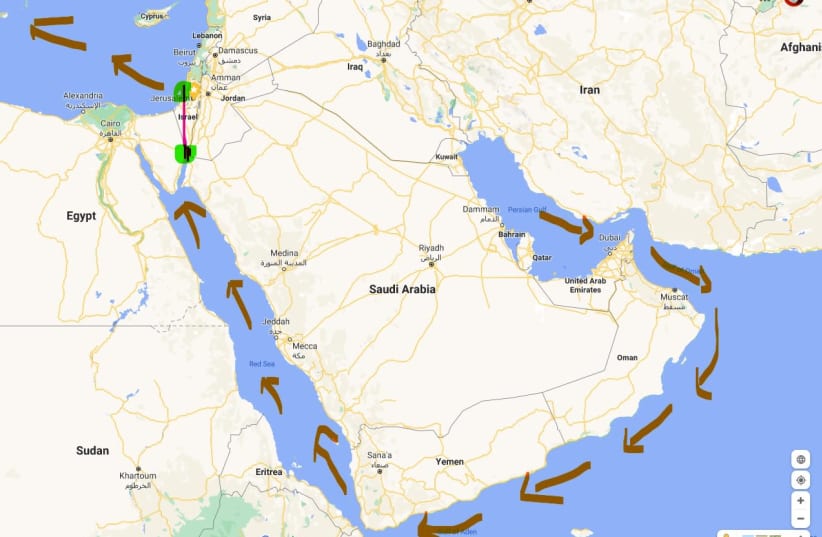This binding memorandum of understanding between Israel's Europe-Asia Pipeline Company (EAPC) and MED-RED, a venture owned by the UAE's Petromal energy company, Israeli firm AF Entrepreneurship, and Lubber Line was signed in October 2020.
The deal allows for the UAE to transport oil in a direct route from the Persian Gulf to the Red Sea, through the EAPC pipeline from Eilat's port up to Ashkelon, and onwards across the Mediterranean Sea towards Europe and the Black Sea. This method saves time and money by using Israel as a land-bridge between the Red Sea and the Mediterranean while bypassing all of Africa.
"The agreement may allow the transportation of hundreds of thousands of tons of fossil fuels in the territorial waters of the State of Israel," Gamliel said at Wednesday's ceremony at the President's Residence honoring volunteers who cleaned Israel's beaches of tar following the February crude oil spill.
Indeed, EAPC claimed the endeavor could "increase the transferred quantities by tens of millions of tons per year."
Gamliel warned that such an increase in crude oil transports "could have serious potential consequences for the environment, which could change the area in the event of a disaster, and could cause irreversible damage."
February's tar spill "is tiny compared to the amounts of oil in question in the case of the EAPC," she reiterated.
Gamliel noted that the Environmental Protection Ministry has been moving towards reducing its use of fossil fuels to "reduce air pollution and the resulting morbidity and mortality" and the country has promised to "combat the climate crisis" as participants in the international process of the OECD and UN. However, this deal does nothing of the sort.
Additionally, the deal increases crude oil transportation in the Gulf of Eilat, threatening the entire tourist industry based there, Gamliel mentioned.
At the ceremony, Gamliel expressed her belief that the economy and the environment do not have to threaten one another and that economically driven deals need not interfere with environmental safety.
"We proved that it is possible to combine the environment and the economy this week," Gamliel said regarding the committee she led to shut the Haifa Bay petrochemical industry down and begin efforts to clean the hazardous waste and pollution.
These environmental efforts left room for "new businesses, the establishment of green industries and positive migration to the area," Gamliel gave this example of the economic benefits to environmentally safe decisions.
"The vision for realizing the potential of Haifa Bay should and can be realized, but we can only do so by closing the petrochemical plants," she concluded.
